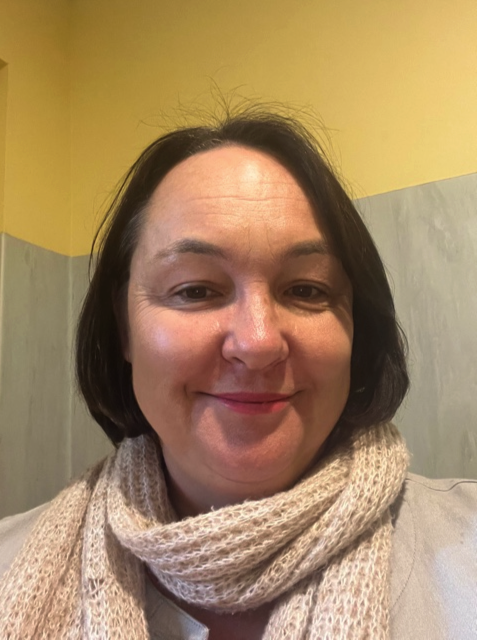At the beginning of every year, I get all philosophical and start to question the Meaning of Life…not just because I’m a huge Monty Python fan, but mostly because I start to think about the teaching year ahead. I put on my rose-coloured glasses which have been polished up over the holidays and ponder the year to come, what it means to me, and what I hope to make it mean for my students and their families.
I’m 48 now, so pretty much middle aged (no crisis yet though), and have been teaching piano for about 15 years. It’s probably not as long as many of you I’m sure, but man have I learned so much in that time! Fresh faced 34-year-old me was pretty sure I knew everything important about the piano – after all I had an AMusA didn’t I? So what if it was 14 years old! I didn’t know much about teaching children but hey, I had 2 kids aged 7 and 4 so I was clearly an expert there too??
I began teaching as I was taught, and I have a huge respect for all my teachers – they were filled with knowledge and passed lots of that on to me. I used the books they gave me, practised a fair bit (didn’t lie too much about that), and I learned to play fairly well, helped along by my ‘good girl’ nature. My first teacher was a lovely lady in a country town, my next was an older woman whose house I rode to on my bike and who gave lovely recital parties, and my last was a fierce and wonderful nun from a convent in Adelaide. As a teacher, I wasn’t fierce and my first students seemed happy: thank you Leah, Delaney, and Alexandra – good girls too, I am sure! After a few years I started teaching at a school and gained a few more students. My experience changed a bit, sometimes it seemed that my students didn’t necessarily want to follow my sage wisdom. I didn’t understand it at all! Why was this different? I knew how to play the piano – if they just did what they were told they would learn too! Why didn’t they practise? Why didn’t they understand the G clef and the F clef and steps and skips? Why couldn’t (or wouldn’t) they count? Why did they always forget their books? OK…some of these questions are way too gnarly and complex for these few words, but I’m sure we’ve all asked them. This led to the afore-mentioned existential soul searching…why am I here? What am I doing this for? Where is the meaning and value? Reading over these words, they do seem a bit middle-aged-crisis in theme!
So, I kept searching and thinking, and have been lucky to have some help along the way. My Classical Piano degree (finished in 2020) was a game changer – I was very lucky to learn some excellent pedagogy, as well as having my entire technique torn down and rebuilt! I also learnt about learning styles and differentiated teaching which seemed to gel with my own experience. The one-size-fits all approach didn’t seem particularly clever any more.
My father is a very wise and relational man (Hi Dad!) who has had a very *successful* career in the Uniting Church as a minister and hospital chaplain. When I say *successful* I don’t mean that he got rich and famous, but that he had a lot of meaningful and mutually satisfying relationships. As I continued teaching, I began to see that my relationships with my students and their families was just as important for me to have a *successful*career as a piano teacher.
In this 15 year journey of teaching, I have done an awful lot of learning. I reflect on my practices and integrate new information along the way. I attended a wonderful conference, Piano Teacher Summit, at the Yamaha Premium Piano Centre in Melbourne in 2022. And amongst all the great learning there, there was a session about branding and finding my own ‘why’. I began to think about which areas of my teaching I enjoyed the most, what got me excited, what got my creative juices flowing, and perhaps what I might be best at, how did I define success for me as a piano teacher. The last example of my learning that I’ll mention (there have been many of course!) is the work that I’ve been doing with Acceptance and Commitment Therapy (ACT). This is work I had been doing with my psychologist, please google it for yourself and don’t take my words as gospel! But my understanding is that when following the principles of ACT you are invited to accept that life often brings discomfort, that is the nature of human existence, but through exploring our own meaning and values and committing to pursuing them with self-compassion, we can have a rich and meaningful life. I began to see that I am who I am, for better or worse! And that others are who they are too, and can’t be changed – and nor should we try. I distilled all this learning and thinking into my introduction letter for my new students which I review every year, and have included an excerpt below:
“My teaching style is very relational and very individualised. I try to bring a balance between what I know is good foundational teaching, and whatever other styles the student is interested in. Even though my background is in classical piano I’m currently trying to teach myself jazz with the help of my son (who is studying Jazz Piano at the Elder Conservatorium), and I’m also very interested in teaching with chords in a pop style. I’m also aware that students learn differently and am always seeking to work out their individual learning style, and how they understand different concepts.
I believe that parents, student, and teacher form a valuable triangle and that if we work together the sky is the limit! The more practice that the student can do, the better of course – but I know full well that this can be a difficult beast to manage. I feel that it’s helpful to have a good work ethic and a good habit with practice, just like one would with homework or school readers or sports practice. Focused practice leads to progress which is very motivating. However: enjoyment and engagement are the biggest motivators of all, and without these even those with the best work ethic will start to flag. For me it’s all about the individual’s journey, so I do my absolute best to find music that your children want to play and am always open to suggestions. Somewhere in the middle of all these dynamics your child will learn to play the piano!”
See what I did with ‘dynamics’ there?
This is where I find myself now, eagerly awaiting what the year holds (but not so eager about the early mornings!) I know that there will be lots of times I get frustrated, but also lots of times I will make connections with people as I deep dive into finding out what makes them tick, and what they are looking for on their own musical journey.
Just a few thoughts from me about how I navigate the complexities of teaching in the 21st century, and my own search for meaning and happiness.

Kate Spyker is a piano teacher in Adelaide, South Australia. She is a 48 yr old wife, and mother of 3 angels (!!) who are 21, 18, and 13. Kate also has a 5 yr old Kelpie x Staffy who guards the house by jumping on the trampoline and barking at people on the other side of the fence!
Kate has really grown to love teaching piano – it has its challenges as does every profession – but she loves the relationships she has with students and their families, and she love seeing lights switch on as they learn. Music has been such a gift to Kate and she is so happy to be able to share it.
